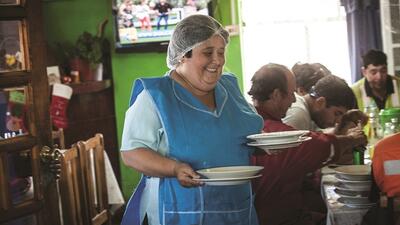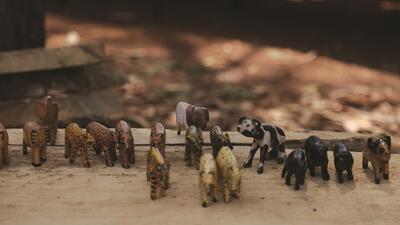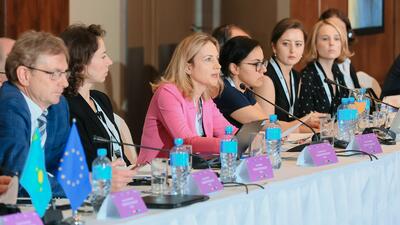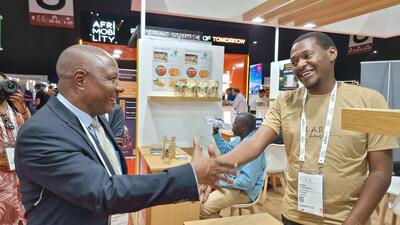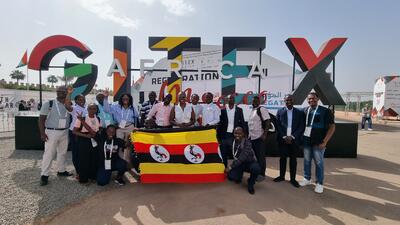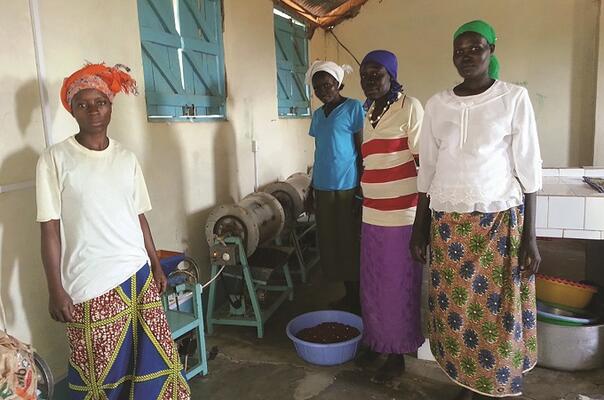
Integrating displaced populations, creating economic growth (en)
dignity and builds bridges with host communities
A record high 65.3 million people are forcibly displaced worldwide, according to the United Nations High Commissioner for Refugees (UNHCR) 2015 Global Trends report. Of these 21.3 million are refugees. With an estimated 34,000 people being forcibly displaced every day as a result of conflict or persecution, one in every 113 people globally is either an asylum-seeker, an internally displaced person or a refugee.
The displacement situation is increasingly being protracted, with the average length of stay in displacement estimated at 17 years. Kenya is the second-largest refugee-hosting country in Africa (after Ethiopia) and has been home to many displaced populations for decades. It has more than 550,000 registered refugees and asylum-seekers, which are hosted within two camps, where the majority is found, and urban centres.
This is a huge challenge for any country. In response, UNHCR is working with the Kenyan government, donors, private sector partners and other actors, to support the participation of refugees in local economies, thereby promoting their socio-economic integration and peaceful coexistence with host communities. Stemming from the UNHCR’s livelihoods strategy, the projects are market-based and aimed at building the human, financial, physical, social and economic capabilities of both displaced populations and the local community.
SKILLS FOR INTEGRATIONUNHCR supports the development of refugees’ skills through a range of efforts.
This includes scholarship support for vocational, technical and professional training to facilitate integration into local labour markets.
For example, Dominic, born in Kenya to Sri Lankan refugee parents and validly recognised as a refugee in Kenya for 25 years, has been supported to attend his studies where he has built social network. Through advocacy efforts UNHCR further supported Dominic to acquire a work permit, which enabled him to legally get employment as an accountant in a midlevel firm. With his source stable, Dominic is currently remitting the required deductions, hence making an individual contribution to the national coffers.
The refugee youth population has a wealth of inherent talents that require nurturing. Through the Artists for Refugees (A4R) project, UNHCR is collaborating with the Danish Refugee Council (DRC) and renowned Kenyan artists to nurture talents of young refugees in performing and visual arts. The initiative offers displaced young people the opportunity to build their talents and ultimately trade their service upon graduation.
BUSINESS SUPPORTProtracted situations present the need for solutions-focused projects through trading. Trade plays a pivotal role in facilitating interaction between refugees and host communities. Refugees possess skills, experiences and capabilities that they carry along with them that are necessary and beneficial for their participation in the host country’s local economy. As such, UNHCR and its partners provide support for access to financial services, basic entrepreneurship skills training, access to markets and legal business documentation.
Abel, an Ethiopian national, came to Kenya in 2004 and was registered in the Kakuma refugee camp in northwest Kenya, where he resided for three years. With UNHCR support, he was enabled to deploy his business experience from Ethiopia to establish a small-scale hawking business from which he managed to, accumulate US$1,700 worth of savings.
Using the savings as working capital, Abel’s business venture grew into wholesale and soon employed five others, including Kenyans. As a wholesaler and distributor he now plays a key role in product supply chains within his place of residence, enhancing his social cohesion with the host community. Abel’s history shows how skilled and experienced refugees – with support through advocacy and access to relevant market information – can contribute immensely to local economies.
Another example is Daniel who arrived in Kenya in 2007 at the age of 15, fleeing violence directed at his family in Rwanda. Upon completion of high school he received support from UNHCR and the Jesuit Refugee Services to acquire skills in information and communication technology (ICT) and graduated with a diploma certificate.
Armed with ICT and entrepreneurship skills, and business grant support from UNHCR and JRS, Daniel opened a computer repair shop and cyber café, which has merged into one computer training centre in the outskirts of Nairobi. Daniel’s skills centre is today attended by mainly Kenyan youth graduating from nearby colleges and high schools, and enrolment in the computer courses has grown from two students to 30 students per session.
Moreover, local residents and administrative authorities are highly appreciative of Daniel’s contribution because students do not have to go far to access computer skills. Daniel himself is also proud that he is able to contribute to the Kenyan economy, not only through the business taxes he pays, but by sharing his knowledge and skills with local youth. It is not correct to send refugees like him to holding camps, he says, adding that it ‘will delay my personal development and I will not make any tangible contribution’ to the country’.
Along with its partners, UNHCR supports refugee producers gain access to local, national and international markets for their services and products. Refugees participate in trade exhibitions, acquire market space (also accessible to Kenyans) and are trained on market-oriented product designs. As an initial platform to promote refugee-made products online, the Facebook page Pamoja Collectives was set up. Currently, work is ongoing to provide access to an e-commerce platform, which would see goods made by refugees being sold to customers across the world.




